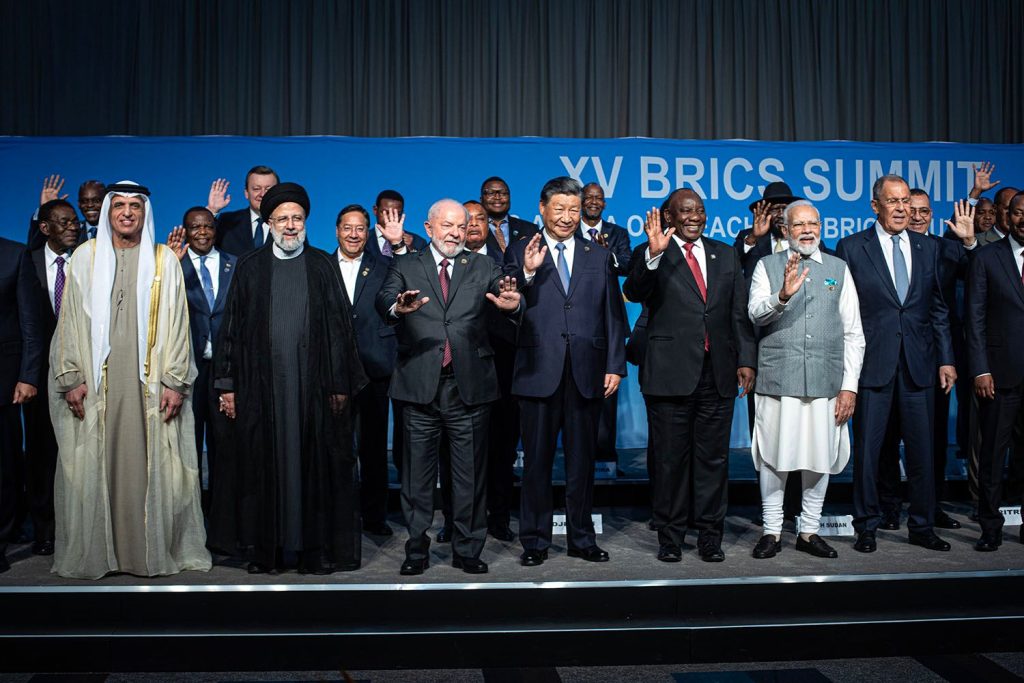The rapid ascent of the BRICS nations—Brazil, Russia, India, China, and South Africa—has intensified the dialogue around Africa’s role in the new world order. Historically a playground for Western influence and resource extraction, Africa is in a defining moment. Will the continent forge a balanced path between Western nations and the BRICS bloc, or will it become a theatre for a new era of geopolitical tug-of-war? This article aims to delve into the complex dynamics shaping this narrative.
A historical assessment is vital to understand the geopolitical landscape of Africa. Since the late 19th century, the continent has been the target of European imperialism, significantly shaping its socio-political framework. Western countries, led by the United States and former colonial powers like France and the United Kingdom, have exerted considerable influence, often under the guise of foreign aid and development projects.

Contrary to the long-standing Western engagement models, the BRICS bloc offers a less paternalistic and more equitable framework for development. With significant investment in infrastructure, education, and technology, BRICS nations aim for a mutually beneficial relationship. South Africa’s inclusion in the bloc provides an African voice within BRICS and a unique opportunity for the continent to align itself with a growth-oriented paradigm.
The emergence of the BRICS bloc poses a problem for Western countries. While their economic and diplomatic grip on Africa remains significant, the growth of BRICS threatens to alter the balance of power. Detractors point to “debt-trap diplomacy,” particularly by China, to argue that the bloc’s engagement may not be as generous as it appears.
The fear is that while BRICS nations may not openly dictate terms, they could subtly impose economic conditions detrimental to Africa’s sovereignty. The continent now faces an unprecedented opportunity. On one hand, there are established ties with Western nations, fraught with history and familiarity. On the other hand, there is a new alliance with BRICS nations that promises economic growth without explicit political strings attached.
Africa is not a monolith. The continent’s diverse economies require tailored approaches, from resource-rich nations like Nigeria and Angola to burgeoning tech hubs like Kenya and Rwanda.
The BRICS bloc offers diversification, but the challenge lies in discerning which partnerships best suit the developmental needs of specific African nations.
The expansion of the BRICS economic bloc offers African countries leverage to negotiate better deals with both BRICS nations and Western countries.
However, there’s a caveat—Africa must avoid becoming a pawn in the geopolitical ambitions of these competing powers. Strategic partnerships must be forged cautiously, prioritizing national interests and long-term gains.
On the other hand, the surprise expansion of the bloc and the admission of six new members, Saudi Arabia, Iran, Ethiopia, Egypt, Argentina, and the United Arab Emirates, could have far-reaching implications, both geopolitically and economically.
One of the most striking questions arising from this expansion is whether the BRICS mechanism can serve as a platform for economic diplomacy to resolve long-standing conflicts among its new members, such as the Nile River dispute between Egypt and Ethiopia.
Given the bloc’s focus on mutual economic growth and investment, BRICS can promote collaborative solutions that benefit both nations.
This situation could serve as a litmus test for the bloc’s ability to foster economic diplomacy among its members.
China’s role in mediating between Saudi Arabia and Iran provides valuable insights into how BRICS might approach conflict resolution.
Long-standing tensions between Riyadh and Tehran have thawed somewhat, thanks to China’s efforts driven by a mix of strategic outlook and economic interest.
In conclusion, with this addition, Africa and its new BRICS partners have an unprecedented chance to redefine their futures.
It’s a precarious but promising balance that requires astute diplomatic maneuvering.
As the stakes get higher, so does the potential for transformative change within Africa and the broader international community.

